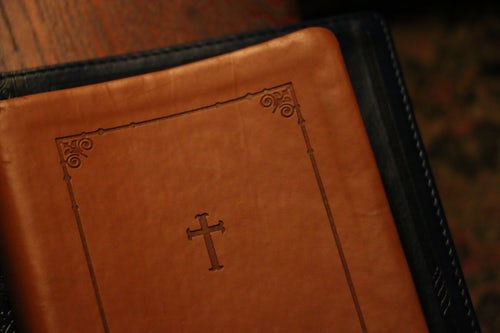I am thoroughly enjoying rereading The Brothers Karamazov, the masterpiece by Fyodor Dostoevsky. In it he writes,
“The world says: ‘You have needs—satisfy them. You have as much right as the rich and the mighty. Don’t hesitate to satisfy your needs; indeed, expand your needs and demand more.’ This is the worldly doctrine of today. And they believe that this is freedom. The result for the rich is isolation and suicide, for the poor, envy and murder.”
Neither of those tracks of life sounds tolerable to me. But there they are, unmasked in sixty-one packed-in, laden words of cleverness, that less eloquently could be put into nine: “I wouldn’t touch God with a ten-foot pole.” Or three: “Prisons of self.” It all amounts to the same things we are witnessing in our culture increasingly: without a mooring to something greater than material possessions, nihilism and despair are the unlivable consequences. As in, what purpose is there in all my stuff? None. Then what is the point of me? There isn’t one. No wonder so many are rat-wheel crazy—the better to ignore God by. It is the world’s existential problem, whether it knows it or not.
But we can know, having received an unsurpassed oracle of wisdom, a historical record without peer, a love letter, an epic drama complete with spoiler of who finally wins the great cosmic struggle. And, as if that were not enough, it is specially enwrapped in the perfection of the Holy Spirit. I speak, of course, of the one and only Bible, which writer-greats like Fyodor excelled at mining. And from it, we confirm what our eyes can see: the outcome of a wholly worldly doctrine is a chaos straight from the maw of the devil.
For what it’s worth—which I would venture is the value of eternity in bliss—the greatest truths in its pages transcend the material world, yet can still be experienced firsthand by us. For as the Good Book tells, God chose to make us from a motive of love, then to sacrifice for us, then to be with us. Father, Son, and Holy Spirit. One God, we’re told, inviting us to receive His love. That will always be the beginning, middle, and ending of anything worthwhile in this world. And to reach for that truth, to reach finally with one’s own heart, is to be free for the first time, Holy indwelt for all time, and made a part of the solution and not a prisoner of our problems anymore. That’s how I see it. But thank you, Fyodor, for seeing it first.
I hope this encourages you today.
Kevin Murray
© 2018 All rights reserved
